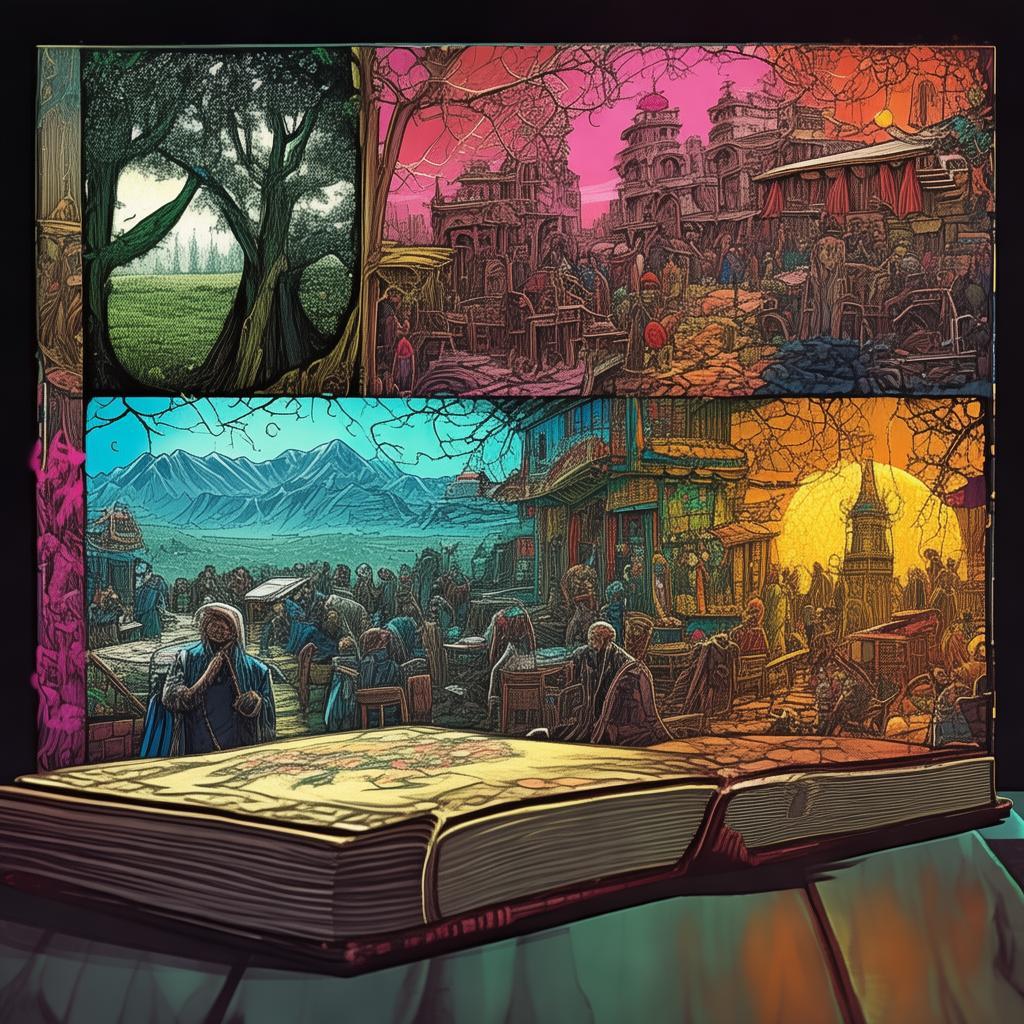Whispers of the Empty Tea Cup
In the tranquil village of Lǐ Yè, nestled between rolling hills and ancient tea plantations, the Tea House of the Whispering Leaves stood as a beacon of tradition and tranquility. It was a place where the scent of aged tea leaves mingled with the whispers of the past, and where every cup was steeped in centuries-old rituals.
The tea house was owned by the revered Master Hua, whose fingers were as deft as a musician's as he moved through the intricate tea ceremony. His apprentice, Mei, was a young woman of gentle demeanor and sharp intuition. Mei had spent years studying under Master Hua, absorbing the subtle art of tea-making and the profound philosophy that guided it.
One crisp autumn morning, as the first light of dawn crept through the slatted wooden shutters, Mei found herself cleaning the tea house. In the dim light, she stumbled upon a forgotten cup, its surface etched with intricate patterns that seemed to dance with an ancient power. It was unlike any other cup in the house, and something in Mei's heart tugged her towards it.
As she brushed away the dust, the patterns on the cup seemed to glow faintly, almost as if they were alive. Intrigued, Mei held the cup to her lips and felt a sudden jolt of warmth, as if the cup itself was breathing. She whispered to it, "Speak to me, ancient cup."
Suddenly, the room seemed to change. The walls shifted, and the shadows danced with life, revealing the faces of those who had once sat there, lost in contemplation and silence. Mei saw Master Hua, his face serene, and beside him, a younger version of herself. She saw the laughter and the sorrow, the moments of joy and the moments of despair that had passed through these walls.

The cup's whisper was faint, but it carried the weight of ages. "You are the keeper of the empty cup," it said. "Only those who have truly embraced the concept of emptiness can understand the power it holds."
Mei's heart raced with the realization that this was no ordinary cup. It was a vessel of the past, a reminder of the lives that had been lived and the truths that had been hidden. She knew she had to uncover the secrets the cup held.
Over the next few days, Mei began to piece together the fragmented stories that the cup revealed. She discovered that Master Hua had once made a promise to a lost love, a promise that had never been fulfilled. The young woman in the reflection was a version of Mei's ancestor, a woman who had been torn apart by the same promise.
As Mei delved deeper, she learned that the tea house was built upon the site of an ancient temple, a place where the spirits of the tea leaves were honored. The cup was a relic from that temple, and its power was tied to the essence of emptiness, a state of being that transcended the physical world.
One evening, as the tea house filled with the scent of freshly brewed tea, Mei sat with Master Hua and shared her discovery. Master Hua listened intently, his eyes reflecting the wisdom of the ages. "The true power of the tea is not in its taste," he said, "but in the space it creates within us, the emptiness that allows us to connect with the world."
Mei realized that the promise Master Hua had made was a promise of presence, of living in the moment. It was a lesson that the cup had come to teach her—a lesson that would change her life forever.
As the story unfolded, the tea house became a sanctuary of reflection and revelation. It was a place where the past and the present intertwined, and where the essence of emptiness was truly understood. Mei, with the guidance of Master Hua, learned to embrace the emptiness within her own heart, finding strength and clarity in the process.
The final revelation came when Mei discovered that the true power of the tea house lay not in the physical structures or the tea itself, but in the shared experiences and the profound connections made between the hearts of those who visited. It was a place where one could find solace, peace, and the wisdom to live a life of emptiness.
With the cup as her guide, Mei took her place as the new keeper of the tea house, carrying forward the legacy of Master Hua. She knew that the whispers of the empty cup would continue to resonate through the ages, a reminder of the power of presence, of the beauty of emptiness, and the truth that the greatest tea is brewed not from leaves, but from the heart.
✨ Original Statement ✨
All articles published on this website (including but not limited to text, images, videos, and other content) are original or authorized for reposting and are protected by relevant laws. Without the explicit written permission of this website, no individual or organization may copy, modify, repost, or use the content for commercial purposes.
If you need to quote or cooperate, please contact this site for authorization. We reserve the right to pursue legal responsibility for any unauthorized use.
Hereby declared.









